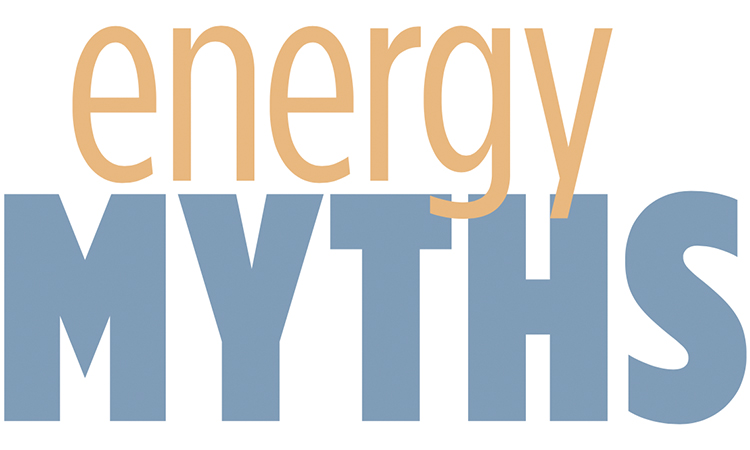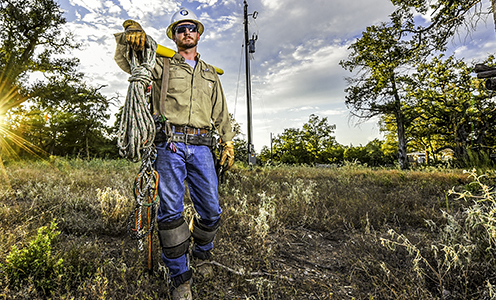The cooperative way
Recent news

Eating carrots will greatly improve your eyesight, cracking your knuckles leads to arthritis, and watching too much TV will harm your vision. We’ve all heard those tall tales, but did you know there are also many misconceptions about home energy use? Don’t be fooled by common energy myths.
MYTH: The higher the thermostat setting, the faster the home will heat.
Many people think raising the thermostat to 85 degrees will heat the room more quickly. That’s not true.
Drastically adjusting the thermostat setting will not make a difference in how quickly you feel warmer. The same is true for cooling. The U.S. Department of Energy recommends setting your thermostat to 78 degrees during summer months and 68 degrees during winter months.
MYTH: Opening the oven door to check on a dish doesn’t really waste energy.
Every time the oven door is opened, the temperature inside is reduced by as much as 25 degrees, delaying the progress of your dish and, more importantly, costing you additional money. If you need to check the progress of a delicious pie, use the oven light.
MYTH: Reducing my energy use is too expensive.
Many consumers believe that reducing energy use requires expensive upfront costs. But the truth is consumers who make small changes to their energy efficiency habits, such as turning off lights when not in use, sealing air leaks and using a programmable thermostat, can see a reduction in energy consumption.
MYTH: I can save money simply by installing a programmable thermostat.
On their own, programmable thermostats do not make your HVAC system more efficient. Their money-saving value lies in their ability to — once properly programmed — regulate the temperature inside your house to coincide with your habits. Look for directions in the manufacturer's website.
MYTH: When I turn off electronics (like my TV, game console or computer), they stop drawing power from the outlet.
Even when turned off, most modern electronics consume electricity so long as they’re still plugged in. Even cell phone chargers consume electricity when plugged in but not actively charging a device. This wasted energy accounts for as much as 10 percent of a home’s total electric use, according to the Lawrence Berkeley National Laboratory. The solution: Unplug.
MYTH: It is not worth my time or money to seal small air leaks around my windows and doors or to make sure my home is adequately insulated.
Air that leaks through cracks and gaps creates as much of an energy drain as leaving a window open all year long, according to Energy Star. The average homeowner can save up to 10 percent on their total annual energy spending by sealing and insulating their home.
POWER TIP: Keep vents open
Don’t block the supply and return air vents in your home with furniture or by closing them off. Blocking the vents makes your heater or AC work harder.
Most of our New Year’s resolutions are along the lines of spending less, saving more, eating less, exercising more, working less and spending more time with family.
This year consider adding a few things to the list to help keep your family safe.
- Practice “out with the old, in with the new” with appliances. If an appliance snaps, crackles or pops but shouldn’t, replace it with a safer, more energy efficient model.
- If you have light switch plates or outlets that get warm to the touch with use, or your lights dim when certain appliances come on, it’s time to call an electrician. The electrical load of most homes has increased substantially in the past 20 years, but your home’s wiring may not be up to the challenge. To keep your loved ones safe, have the wiring checked out and make the necessary improvements and repairs.
- If you regularly find yourself headed to the breaker box with a flashlight in hand to restore power, it’s probably time for repairs or an upgrade. Have a professional electrician do an inspection and make repairs.
- Smoke detectors and fire extinguishers only help if they work properly. Regularly test and replace the batteries in smoke detectors. Replace or recharge fire extinguishers so they’ll be ready in the event of a fire.





